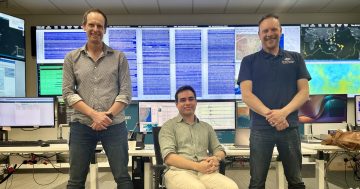The ANU informs us of progress by Dr André Carvalho, from the ARC Centre for Quantum Computation and Communication Technology and the Research School of Physics and Engineering, in the terrifying world of quantum computing by embracing noise.
“Most people have experienced some kind of computer error in their life – a file that doesn’t open, a CD that can’t be read – but we have ways to correct them. We also know how to correct errors in a quantum computer but we need to keep the noise level really, really low to do that,” he said.
“That’s been a problem, because to build a quantum computer you have to go down to atomic scales and deal with microscopic systems, which are extremely sensitive to noise.”
Surprisingly, the researchers found that the solution was to add even more noise to the system.
“We found that with the additional noise you can actually perform all the steps of the computation, provided that you measure the system, keep a close eye on it and intervene,” Dr Carvalho said.
“Because we have no control on the outcomes of the measurement – they are totally random – if we just passively wait it would take an infinite amount of time to extract even a very simple computation.
“It’s like the idea that if you let a monkey type randomly on a typewriter, eventually a Shakespearean play could come out. In principle, that can happen, but it is so unlikely that you’d have to wait forever.
“However, imagine that whenever the monkey types the right character in a particular position, you protect that position, so that any other typing there will not affect the desired character. This is sort of what we do in our scheme. By choosing smart ways to detect the random events, we can drive the system to implement any desired computation in the system in a finite time.”
Dr Carvalho said quantum information processing has the potential to revolutionise the way we perform computation tasks.
“If a quantum computer existed now, we could solve problems that are exceptionally difficult on current computers, such as cracking codes underlying Internet transactions.”
So two things:
1) If you already have the complete works of Shakespeare why are you trying to get the monkeys to re-type it? (That is how do you know if there’s a “correct” position to save if you don’t already know the outcome making the whole process useless)
2) The best example of uses for the technology is stealing our credit card numbers?





















